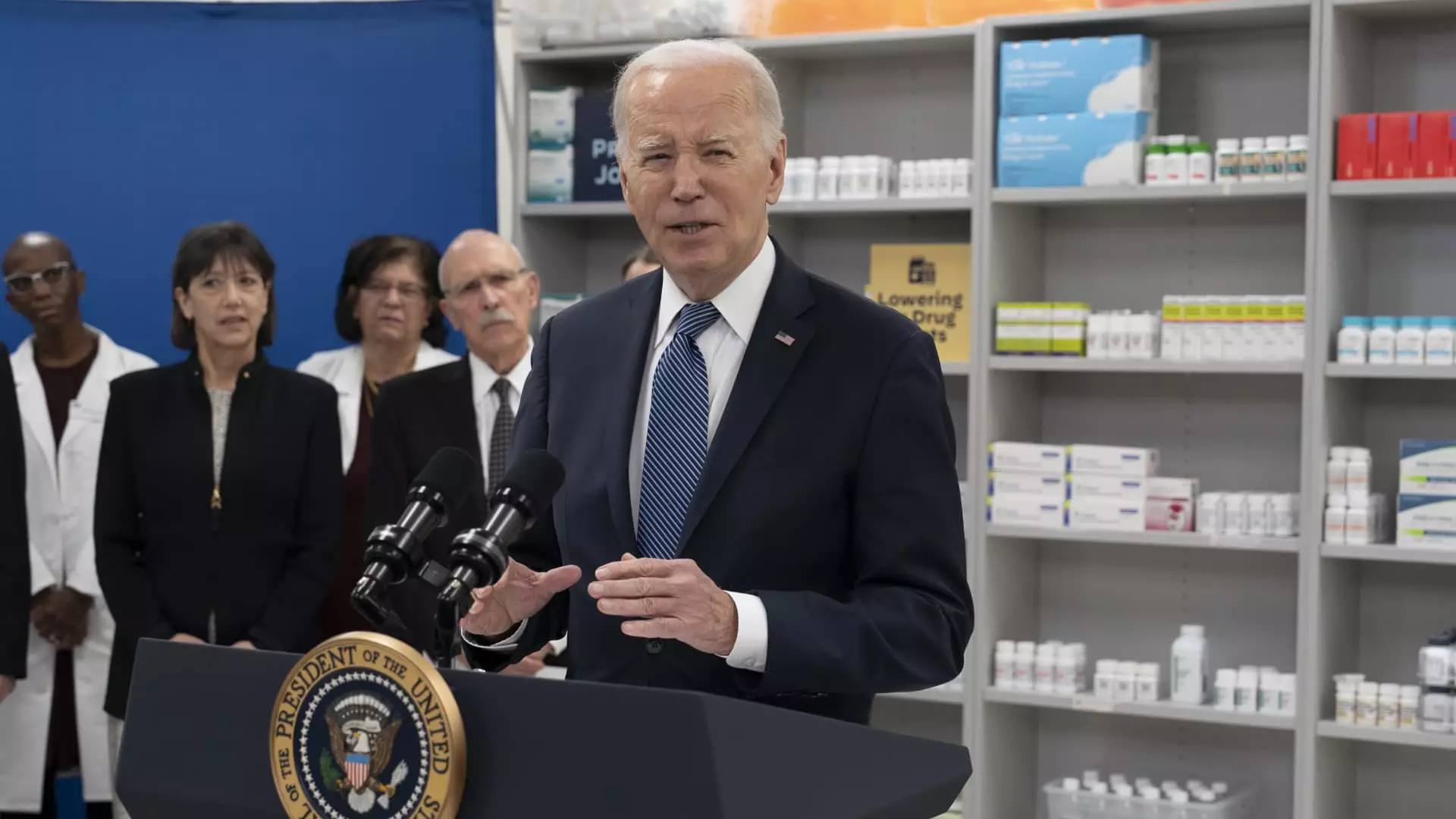The Biden administration recently announced that it will be imposing inflation penalties on 64 prescription drugs for the third quarter of this year. This move is aimed at lowering costs for certain older Americans who are enrolled in Medicare. President Joe Biden has been vocal about his focus on reducing drug prices in the United States, making it a central pillar of his health-care agenda and reelection platform for 2024.
The provision of Biden’s Inflation Reduction Act requires drugmakers to pay rebates to Medicare if they increase the price of a medication faster than the rate of inflation. This will result in a lower coinsurance rate for patients who use the specified drugs covered under the announcement, ultimately saving them money. According to the administration, some Medicare patients may save up to $4,593 per day during the third quarter of this year.
The drugs affected by the inflation penalties are used to treat a variety of conditions, including cancer, certain infections, and osteoporosis. Some notable drugs on the list include Bristol Myers Squibb’s Abecma for multiple myeloma, Pfizer’s Adectris for certain lymphomas, and Astellas Pharma and Pfizer’s Padcev for advanced bladder cancer. The prices of these drugs have been increasing faster than inflation every quarter, prompting the enforcement of penalties to protect patients from price hikes.
Neera Tanden, White House domestic policy advisor, highlighted the importance of the Inflation Reduction Act in shielding seniors from the escalating costs of prescription drugs. Prior to this legislation, seniors were vulnerable to arbitrary price increases from pharmaceutical companies. The Biden administration’s efforts aim to create a fairer and more affordable healthcare system for all Americans.
The Centers for Medicare & Medicaid Services are set to begin sending invoices to drugmakers in 2025 for the rebates owed to the program. This marks a significant step towards holding pharmaceutical companies accountable for their pricing practices. In December, Biden unveiled a list of 48 prescription drugs that would face inflation penalties in the first quarter of 2024, signaling a continued commitment to addressing the issue of rising drug costs.
The imposition of inflation penalties on prescription drugs is a crucial measure to combat the excessive price hikes that burden American patients. By promoting transparency and accountability in the pharmaceutical industry, the Biden administration is taking significant strides towards creating a more affordable and accessible healthcare system.

